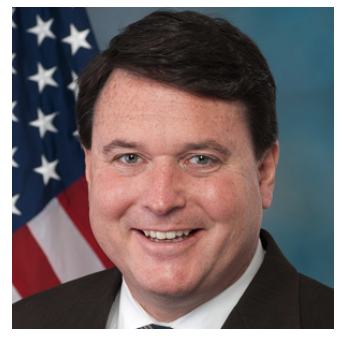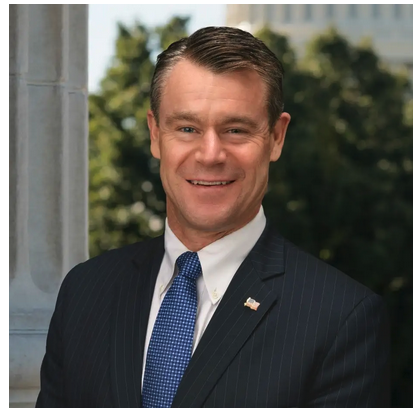
Indiana Attorney General Todd Rokita is co-leading a 14-state lawsuit against the Federal Communications Commission's (FCC’s) new rule that could limit phone calls for inmates and prevent local police from performing one of their most basic functions — investigating and preventing crimes by surveilling inmate calls.
By capping the cost for inmates far below any reasonable level, the FCC will impose new costs on taxpayers and deprive state and local authorities of many safety benefits that come from allowing inmates access to audio and video calls. The FCC’s new rule would likely force some jails to eliminate such services altogether — directly undermining the goal of expanding inmate access to calls that the FCC claims it is pursuing.
“Federal bureaucrats at the FCC are trying to dictate to our local sheriffs and state prison administrators how to manage their prison facilities,” Attorney General Rokita said. “Their unlawful tampering runs a very real risk of making our jails and therefore our communities less safe. That’s why we’re stepping forward to protect the interests of sheriffs, correctional officers, the Indiana Department of Correction and all Hoosiers to challenge this rule and defend common sense.”
Attorney General Rokita’s multistate challenge seeks the reversal of unlawful regulations that, among other things, impermissibly intrude into how state and local prisons and jails provide communication services to inmates. The feds’ new inmate phone call rules threaten to dismantle the monitoring of inmate communications — a valuable investigative tool available to local law enforcement.
Granting inmates’ access to communication services — which include both calls and other online services accessible by tablets, such as legal resources and religious materials — helps reduce violence and other disruptive behavior in inmate populations. By monitoring inmate calls, facilities are also able to identify suicide risks and criminal activity and gather information that can help solve crimes. Providing communication services for inmates has become a vital tool that state and local authorities rely on to keep inmates and the public safe.
By issuing this rule, the FCC has far exceeded its statutory authority to regulate inmate communication services and ignored important safety and economic considerations that should have guided the agency’s decision making.
Attorney General Rokita is co-leading this lawsuit with Arkansas Attorney General Tim Griffin. The 14 states will detail their arguments upon filing their opening brief later this year.

October is Breast Cancer Awareness Month
Breast cancer is the second leading cause of cancer death among Hoosier women, which is why we recognize the month of October as Breast Cancer Awareness Month.
Early detection of breast cancer is critical in improving a patient's chance of survival, which is why I supported a new law this year that improves breast cancer screenings and communication with patients.
Here in Indiana, a specialty license plate has also been established, with proceeds from this plate benefitting the Indiana Breast Cancer Awareness Trust.
While women are most often diagnosed with breast cancer, men can be diagnosed with the disease as well.
To learn more about breast cancer-related programs in Indiana, click here.

While national defense is primarily the responsibility of the federal government, Indiana Senate Republicans have been working to protect Hoosiers from foreign adversaries like China, Russia and Iran.
As part of these efforts, the Indiana Public Retirement System (INPRS) recently completed a $1.2 billion divestment from Chinese government-controlled assets.
This effort stems from a new law I supported that required INPRS to divest from these entities because I believe Hoosiers' tax dollars should not be invested in companies controlled by the Chinese Communist Party.
This year, I also supported laws that:
- Protect public colleges from influence by foreign adversaries;
- Ban foreign adversaries from purchasing or leasing agricultural land; and
- Prohibit foreign adversaries from purchasing or leasing any land within a 10-mile radius of a military installation.
For more information about our state's efforts to divest from our foreign adversaries, click here.

U.S. Senators Todd Young (R-Ind.) and John Hickenlooper (D-Colo.) introduced the bipartisan Critical Materials Future Act to establish a pilot program for the Department of Energy to support domestic critical mineral processing projects.
“Our reliance on global supply chains for critical materials poses a significant national security threat, especially as the Chinese Communist Party continues to manipulate this market,” said Senator Young. “Our bill will take innovative steps to identify opportunities for American leadership and investment in critical material projects, strengthening domestic supply chains and boosting our economic and global competitiveness.”
“China is rivaling American dominance by controlling the critical minerals market,” said Senator Hickenlooper. “Boosting our domestic processing is how we’ll maintain American leadership in the world.”
The U.S. critical minerals list contains 50 minerals – including graphite, nickel, and cobalt – that are essential to our economy, infrastructure, and military capability. Critical minerals are used in smartphones, semiconductors, batteries, advanced defense equipment, and more.
China currently controls 90% of the global processing capacity for rare earth elements and over 80% of the processing for other critical minerals like cobalt, gallium, and graphite. Experts have become increasingly concerned with U.S. dependence on China for critical materials, arguing it poses a significant risk to national security. In August 2023, China announced export controls on gallium and germanium, critical minerals used in semiconductor manufacturing. In October 2023, China introduced export license requirements for graphite, essential for battery anodes. And in June 2023, a cobalt mine in Idaho was forcedto shutter its operations before it opened and lay off hundreds of workers as China flooded the market with cheap cobalt.
Specifically, the Critical Materials Future Act grants the Secretary of Energy the authority to deploy innovative financial mechanisms, such as contracts for differences and advanced market commitments, to support critical material processing projects in the United States. The bill also requires the Secretary of Energy to conduct a comprehensive study on the impact of these financial tools on market dynamics and processing projects within the critical materials sector, and to provide recommendations for expanding their use to strengthen America’s processing capabilities.
In addition to Senators Young and Hickenlooper, Senators Lindsey Graham (R-S.C.) and Chris Coons (D-Del.) also cosponsored the legislation.
The Critical Materials Future Act is supported by BPC Action, American Critical Minerals Association, and Employ America.
Full text of the Critical Materials Future Act is available here.

The Indiana Natural Resources Commission (NRC) has opened public comment for proposed changes to allow the limited, regulated trapping of bobcats. In March, the Indiana General Assembly passed legislation (Senate Enrolled Act 241) that directs the Indiana Department of Natural Resources (DNR) to have rules in place by July 2025 for bobcat harvest. Public comments can be submitted at IN.gov/nrc/rules/rulemaking-docket using the “Submit Comments Here” link under the Bobcat Amendments Proposed Rule. Comments can also be mailed to the Natural Resources Commission.
The deadline for submitting public comments is Nov. 14, 2024. A public hearing will also be held on Nov. 14, 2024 between 5-7 p.m. ET at the Southeast – Purdue Agricultural Center located at 4425 East 350 North, Butlerville, IN 47223. Interested members of the public can attend in person or online anytime during that timeframe. The public hearing will also be webcast on the NRC’s rulemaking docket website at IN.gov/nrc/rules/rulemaking-docket during the time of the public hearing and comments will be able to be made through the online webcast. Sign up for updates at on.IN.gov/dfw-rule-changes
For more information on the proposed rule changes and submitting comments, visit on.IN.gov/dfw-rule-changes.
SalemLeader.com
Leader Publishing Company of Salem, Inc.
P.O. Box 506
117-119 East Walnut Street
Salem, Indiana. 47167
Phone: 812-883-3281 | Fax: 812-883-4446
Business Hours:
Mondays through Fridays, 9:00am - 5:00pm
News:
news@salemleader.com
Office:
office@salemleader.com
Publisher:
publisher@salemleader.com
Business
- More Business News
- Go To Guide
- Business Directory
- Auctions
Education
- More Education News
Opinion
- Editorials
- Letters to the Editor
- Columns
- Unsung Heroes
- Days Gone By
- In the Garden
- Guest Columns
- Reader's Poll
- Salem Leader Forum
- Questions and Answers
Church
- Bible Aerobics
- Church News
- Church Directory

